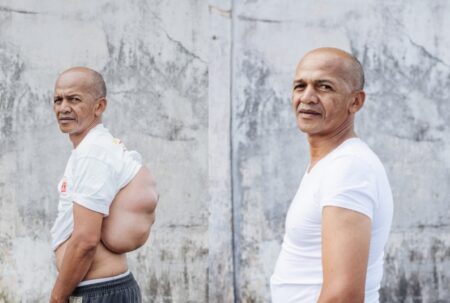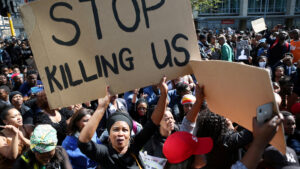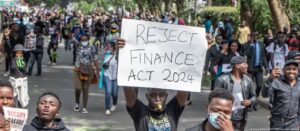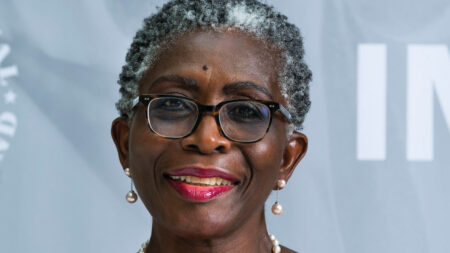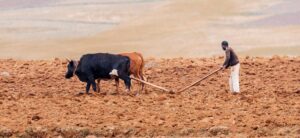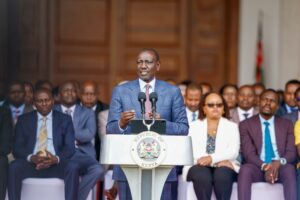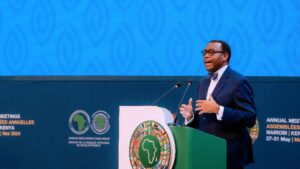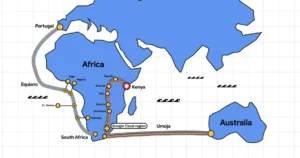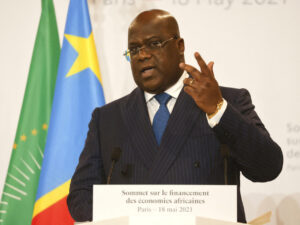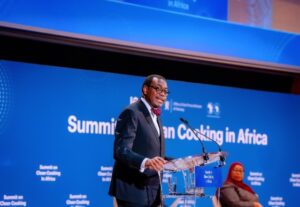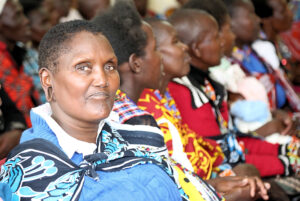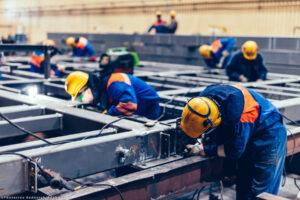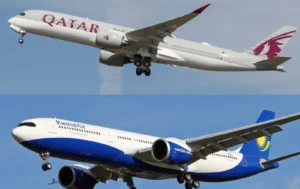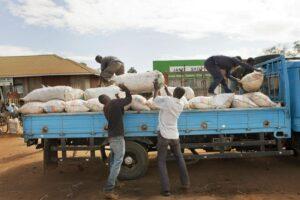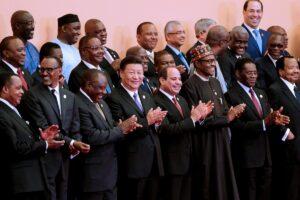- Africa’s new dawn: the rising role of digital and AI in agriculture
- Can Dangote Refinery Transform Africa Energy Ambition
- Gallup Survey: 80 per cent of Kenyan Workers Are Disengaged and Seek New Opportunities
- Madagascar Man Freed from 5KG Tumor After 15-Year Struggle
- How women in Africa are perceived and treated
- Sugar consumption in Kenya to Increase to 1.23 Million Tonnes
- Can Somalia and Turkey Oil deal Bring Change in Somaliland
- Remittances to Kenya dropped to $371.6 million in June, marking a six month low
Africa
- Madagascar man freed from 5KG tumor after the four-hour surgery, his family, including his wife, daughter, and sister, were all waiting for him outside
- By age 53, Fidisoa struggled to do the high level of manual labor required from his livelihood
- He said that the benign tumor, a soft lobular fibroma which weighed 5 kilograms, was now gone for good
A father of three can sleep comfortably on his back for the first time in 15 years after having a massive tumor – weighing 11lbs (5kgs) – removed by surgical charity Mercy Ships.
Malagasy builder and rice farmer Fidisoa was 38 when what appeared to be a tiny pimple on his back started to grow, first into a lump and then into the size of a fist. It continued to grow until Fidisoa looked as if he carried a backpack underneath his shirt.
By age 53, Fidisoa struggled to …
- Only about 50% of women in Kenya and 52% in Uganda feel that they are treated with respect and dignity.
- In Zimbabwe, 60% of women feel that they are treated with respect and dignity. This is a sharp drop from an estimated 71% of women who reported being treated with respect in 2013.
- The percentage of people in South Africa who feel this way was even worse at 27% among men and 28% among women.
In Africa’s most advanced economy South Africa, the percentage of people in South Africa who felt this way was even worse at 27 percent among men and 28 percent among women.
The push for equality across Africa appears far from yielding good results with a new report showing that the perceptions that women are treated with respect and dignity have dropped sharply in recent years in Kenya, Uganda South Africa, and Zimbabwe.
According to Gallup …
- Africa posts sharp decline in support for democracy despite 66 Per cent of the continent preferring democracy over any other system.
- Opposition to military rule has also weakened by 11 points, notably in Mali and Burkina Faso.
- Satisfaction with democracy has notably decreased in prominent democracies like Botswana (-40 points), Mauritius (-40 points), and South Africa (-35 points).
Over the past decade, popular support for democracy has declined sharply in several African countries, and opposition to military rule has weakened a new survey by Afrobarometer has shown.
Afrobarometer’s inaugural flagship report shows that satisfaction with the way democracy works has continued to decline despite that Africans remaining strongly committed to democracy, its norms, and institutions.
The survey covering the period between 2021 and 2023, covers 39 countries, providing data on African experiences and evaluations of democracy, governance, and quality of life.
The findings, based on 53,444 face-to-face interviews, show that …
- At the ongoing AfDB Annual Meetings 2024 in Nairobi, President Dr. Akinwumi Adesina highlighted Africa’s resilience and growth potential despite global challenges, highlighting the AfDB’s impactful initiatives in infrastructure, climate action, and economic development.
- Dr. Adesina celebrated the Bank’s 60th anniversary, showcasing its financial innovations and strong partnerships aimed at empowering women, and youth, and promoting sustainable development.
- The President’s speech inspired optimism and a collective resolve to continue driving Africa’s progress and transformation.
The cool Nairobi air buzzed with anticipation as leaders, policymakers, and stakeholders from across the African continent and beyond gathered at the Kenyatta International Convention Centre, in Kenya’s capital today. The opening ceremony of the African Development Bank’s (AfDB) Annual Meetings 2024 was not just an ordinary event; it marked a turning point in the institution’s history—its 60th anniversary. Against this historic backdrop, Dr. Akinwumi Adesina, the President of AfDB, delivered a powerful speech that …
- Google is rolling out Umoja cable, the first-ever fibre optic link directly connecting Africa with Australia, aiming to enhance global digital infrastructure and foster economic growth.
- The Umoja project, developed in collaboration with Liquid Technologies, will improve connectivity and drive digital inclusion across Africa.
- This initiative is part of Google’s long-term commitment to Africa’s digital transformation, with investments in infrastructure, cybersecurity, and AI innovation to support growth.
In a deal set to revolutionize digital connectivity across continents, tech heavyweight Google has announced the launch of Umoja, the first-ever fibre optic link directly connecting Africa with Australia. This project is poised to enhance global digital infrastructure, foster economic growth, and drive digital inclusion on a new level scale.
The Umoja cable, anchored in Kenya, will traverse a diverse array of African countries, including Uganda, Rwanda, the Democratic Republic of Congo, Zambia, Zimbabwe, and South Africa, before crossing the Indian Ocean …
- Three Americans are among 50 arrested in a failed attempt to overthrow President Tshisekedi of DRC.
- The alleged coup leader, Christian Malanga, a US-educated former refugee and naturalized US citizen, along with his son Marcel and Benjamin Zalman-Polun, a cannabis entrepreneur from Maryland, among those arrested.
- The UN and international community have condemned the coup attempt, instead, calling support for the Congolese government.
In a stunning turn of events that has sent ripples through the international community, three American nationals have been arrested for their alleged involvement in a failed coup attempt in the Democratic Republic of Congo (DRC).
The dramatic incident unfolded in the early hours of Sunday May 19th, culminating in a shootout in the capital, Kinshasa. Later, a disturbing video footage shows two of the American men pleading for mercy on the ground, surrounded by heavily armed government forces.
The plot to overthrow President Félix Tshisekedi’s government …
- In Africa, a staggering 1.2 billion people lack access to clean cooking facilities.
- Lack of clean cooking facilities is one of the main causes of deforestation in Africa.
- AfDB funding is a major step along the road to saving the lives of 600,000 mainly women and children each year.
The African Development Bank Group (AfDB) has pledged $2 billion over the next decade towards clean cooking initiatives in Africa, marking a huge stride in the effort to save the lives of 600,000 people, predominantly women and children, each year. This commitment aims to address the health hazards associated with traditional cooking methods that rely on charcoal, wood, and biomass, which contribute to severe respiratory illnesses and environmental degradation.
At a summit on Clean Cooking in Africa, held in Paris, AfDB President Dr. Akinwumi Adesina announced that the Bank would allocate 20 per cent of its energy project financing to promoting …
- Across Africa, gender inequality in marriage, divorce, custody, and property rights is perpetuated by sex discrimination embedded in both legal systems and customary laws.
- Discriminatory family laws have profound impacts, increasing the risk of sexual and gender-based violence for women and girls.
- Laws in Cameroon, Nigeria, Senegal, South Sudan, Sudan, and Tanzania still allow child marriage.
Discrimination against women and girls remains widespread in family laws across Africa, according to new research by Equality Now. An analysis of 20 African countries reveals that gender inequality in marriage, divorce, custody, and property rights is perpetuated by sex discrimination embedded in both legal systems and customary laws. Despite some significant legal reforms, progress has been slow, inconsistent, and hindered by setbacks, lack of political will, and weak implementation.
The report, “Gender Inequality in Family Laws in Africa: An Overview of Key Trends in Select Countries,” highlights how overlapping and …
- Kenya’s Green Jobs Potential will be key in preserving the country’s natural heritage and combating the challenges posed by climate change.
- PS Labour and Skills Development Shadrack Mwadime warned that the transition to green economy has far reaching implications for the world of work
- Green jobs are becoming a crucial driver of sustainable development in Kenya,
Stakeholders in the environment conservation sectors are deliberating on ways to unlock Kenya’s potential as a global hub for digital work and green jobs. The government, jointly with Jacob’s Ladder Africa, International Labour Organisation, United Nations Environment Programme and United Nations Children’s Fund, are in talks in Nairobi to align government priorities with the demands of the green job market.
Kenya National Green Jobs and Skills Development Workshop, brings together stakeholders from government, academia, private sector, finance, and youth-led groups to address the critical need for green jobs and skills development in …





